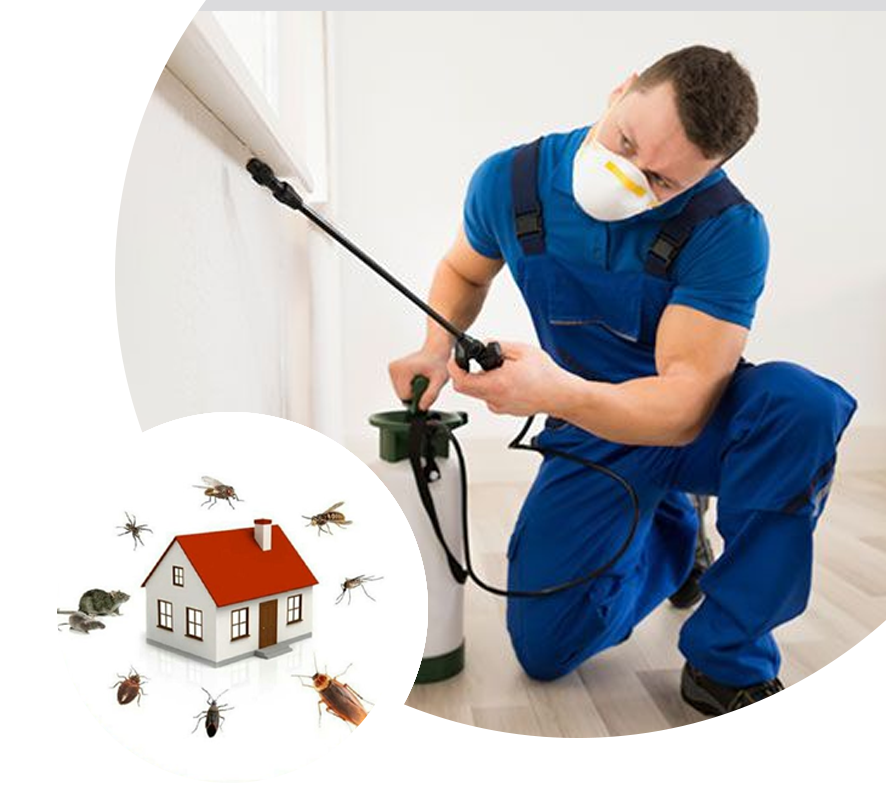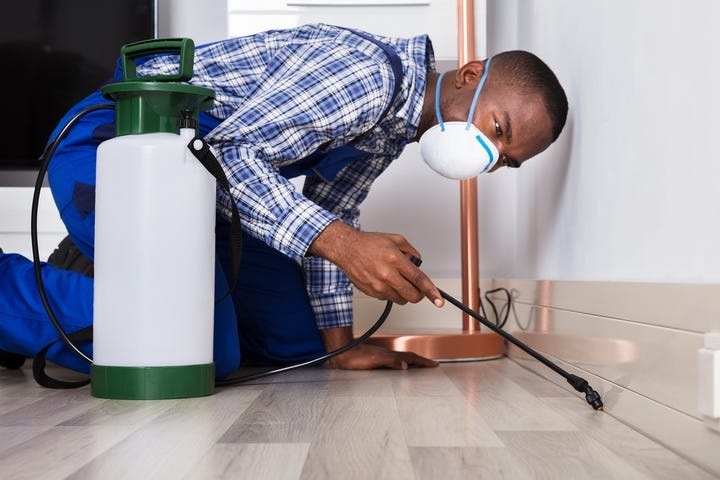Dependable Pest Control Washington DC: Protect Your Home and Organization!
Dependable Pest Control Washington DC: Protect Your Home and Organization!
Blog Article
Professional Parasite Control Techniques for Long-Term Results
Professional parasite control techniques encapsulate a detailed strategy that starts with a complete assessment and assessment, complied with by precise insect recognition to comprehend their habits patterns. The implementation of Integrated Insect Monitoring (IPM) principles, coupled with eco-conscious therapies, develops the foundation of lasting bug obliteration.
Assessment and Analysis
Upon entering a residential or commercial property for parasite control services, the preliminary action is a comprehensive inspection and assessment to identify the degree of the problem and identify the most effective therapy strategy. Specialist parasite control technicians are trained to carefully take a look at the premises, searching for indicators of insect activity such as droppings, gnaw marks, nests, or any type of structural damage. They will certainly additionally assess the conditions that may be drawing in pests, such as food resources, water leakages, or entrance factors.

Insect Identification and Actions

In addition, understanding the habits of the identified pest is key to carrying out effective control steps. As an example, recognizing where parasites nest, what they prey on, and their activity patterns can help pest control experts create methods to eradicate them effectively. Some bugs may be nocturnal, while others are more energetic throughout the day. This knowledge enables the application of therapies at ideal times for maximum performance.
Integrated Bug Monitoring (IPM)
Integrated Insect Monitoring (IPM) methods incorporate several techniques to manage and protect against insect invasions in a lasting and eco-friendly way. bed bug exterminator. By incorporating approaches such as organic control, environment adjustment, modification of social methods, and the usage of immune varieties, IPM aims to minimize making use of chemical pesticides
Among the key principles of IPM is the emphasis on prevention. This proactive visit here method entails surveillance pest populaces consistently to detect any possible problems prior to they rise. By identifying bug troubles early, pest control actions can be applied promptly and successfully.
Furthermore, IPM promotes the usage of safe bug control approaches whenever feasible. click This can include using natural predators of the insects, presenting advantageous pests, or using scents to interrupt breeding patterns. By minimizing dependence on chemical pesticides, IPM not just secures the environment yet additionally helps maintain an look at this web-site equilibrium in the ecological community.
Environmentally-Friendly Treatments
Implementing eco-conscious methods in parasite control procedures can efficiently address problems while focusing on ecological sustainability. Environmentally-friendly treatments concentrate on lessening the effect of insect control approaches on ecological communities, non-target organisms, and human health. These methods often involve the use of natural predators, such as ladybugs or nematodes, to control pest populations, minimizing the need for chemical treatments. Additionally, strategies like habitat control, such as changing wetness degrees or getting rid of food resources, can assist discourage pests without the usage of unsafe compounds.
One more trick element of environmentally-friendly therapies is using natural and naturally degradable items that break down promptly without leaving unsafe residues in the setting. Organic pesticides stemmed from plants like chrysanthemums or neem offer effective parasite control while posturing marginal danger to non-target varieties. Additionally, utilizing techniques like warm therapies or scent traps can target specific parasites with precision, minimizing the total environmental influence of insect control techniques.
Ongoing Tracking and Upkeep
Normal evaluations by trained specialists are required to recognize any type of indications of bug activity, analyze the performance of previous therapies, and make adjustments to the pest control plan as needed. By keeping an eye on insect populaces over time, bug control experts can track fads, expect possible concerns, and carry out precautionary measures to lessen the danger of future invasions.
In enhancement to tracking, maintenance methods are vital for lasting bug control success. This includes applying correct hygiene actions to eliminate prospective food and water resources for bugs, sealing entrance indicate avoid bugs from going into the properties, and dealing with any type of structural issues that can help with insect problems (pest control). By integrating recurring tracking and maintenance into an integrated bug administration strategy, organizations can ensure a pest-free environment and protect their residential or commercial property versus pricey damages and wellness threats
Final Thought
To conclude, making use of specialist parasite control techniques such as extensive assessment and analysis, exact parasite identification and understanding of their habits, incorporated bug administration strategies, environmentally-friendly treatments, and ongoing monitoring and upkeep are important for attaining long-term cause parasite control. By executing these approaches, people can successfully handle parasite invasions and preserve a pest-free setting in a sustainable way.
Report this page